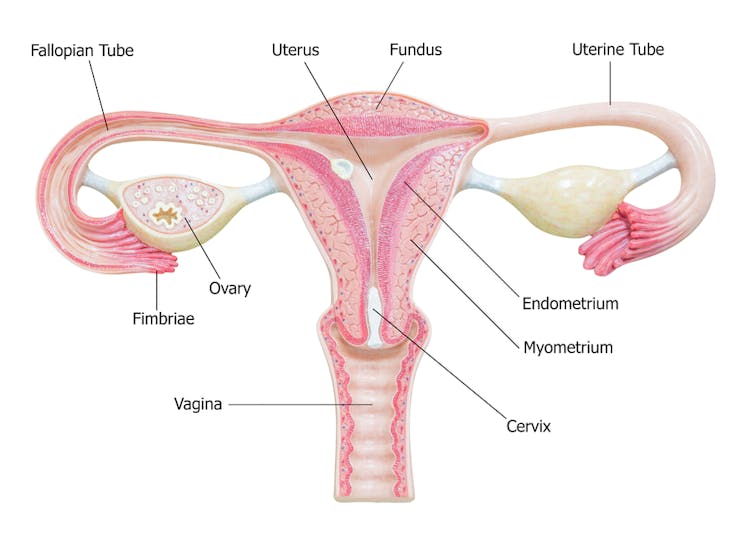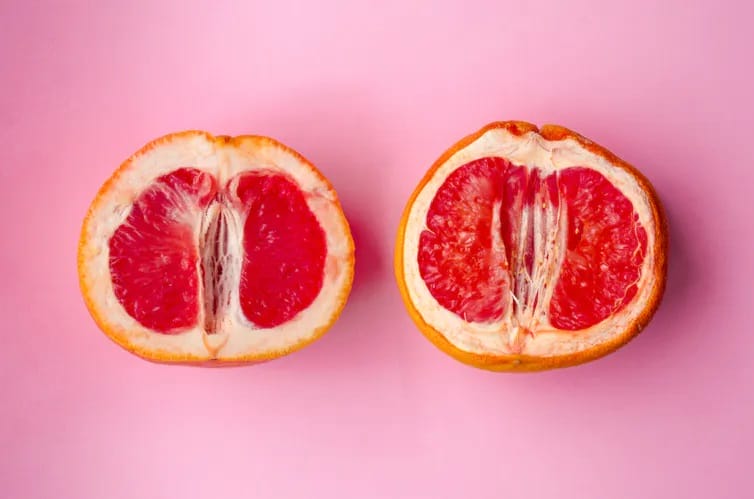Diet and Nutrition
What happens to your vagina as you age or lose weight
Your vagina as you age or lose weight: The vagina is an internal organ with a complex ecosystem, influenced by circulating hormone levels which change during the menstrual cycle, pregnancy, breastfeeding and menopause.
Around and after menopause, there are normal changes in the growth and function of vaginal cells, as well as the vagina’s microbiome (groups of bacteria living in the vagina). Many women won’t notice these changes. They don’t usually cause symptoms or concern, but if they do, symptoms can usually be managed.
Here’s what happens to your vagina as you age, whether you notice or not.
Let’s clear up the terminology
We’re focusing on the vagina, the muscular tube that goes from the external genitalia (the vulva), past the cervix, to the womb (uterus). Sometimes the word “vagina” is used to include the external genitalia. However, these organs play different roles in women’s health.

What happens to the vagina as you age?
Like many other organs in the body, the vagina is sensitive to female sex steroid hormones (hormones) that change around puberty, pregnancy and menopause.
Menopause is associated with a drop in circulating oestrogen concentrations and the hormone progesterone is no longer produced. The changes in hormones affect the vagina and its ecosystem. Effects may include:
- less vaginal secretions, potentially leading to dryness
- less growth of vagina surface cells resulting in a thinned lining
- alteration to the support structure (connective tissue) around the vagina leading to less elasticity and more narrowing
- fewer blood vessels around the vagina, which may explain less blood flow after menopause
- a shift in the type and balance of bacteria, which can change vaginal acidity, from more acidic to more alkaline.
10 ways your vagina changes after you give birth
What symptoms can I expect?
Many women do not notice any bothersome vaginal changes as they age. There’s also little evidence many of these changes cause vaginal symptoms. For example, there is no direct evidence these changes cause vaginal infection or bleeding in menopausal women.
Some women notice vaginal dryness after menopause, which may be linked to less vaginal secretions. This may lead to pain and discomfort during sex. But it’s not clear how much of this dryness is due to menopause, as younger women also commonly report it. In one study, 47% of sexually active postmenopausal women reported vaginal dryness, as did around 20% of premenopausal women.
Other organs close to the vagina, such as the bladder and urethra, are also affected by the change in hormone levels after menopause. Some women experience recurrent urinary tract infections, which may cause pain (including pain to the side of the body) and irritation. So their symptoms are not coming from the vagina itself but relate to changes in the urinary tract.
Not everyone has the same experience

Women vary in whether they notice vaginal changes and whether they are bothered by these to the same extent. For example, women with vaginal dryness who are not sexually active may not notice the change in vaginal secretions after menopause. However, some women notice severe dryness that affects their daily function and activities.
Researchers globally are taking more notice of women’s experiences of menopause to inform future research. This includes prioritising symptoms that matter to women the most, such as vaginal dryness, discomfort, irritation and pain during sex.
If symptoms bother you
Symptoms such as dryness, irritation, or pain during sex can usually be effectively managed. Lubricants may reduce pain during sex. Vaginal moisturisers may reduce dryness. Both are available over the counter at your local pharmacy.
While there are many small clinical trials of individual products, these studies lack the power to demonstrate if they are effective in improving vaginal symptoms.
In contrast, there is robust evidence that vaginal oestrogen is effective in treating vaginal dryness and reducing pain during sex. It also reduces your chance of recurrent urinary tract infections. You can talk to your doctor about a prescription.
Vaginal oestrogen is usually inserted using an applicator, two to three times a week. Very little is absorbed into the bloodstream, it is generally safe but longer-term trials are required to confirm safety in long-term use beyond a year.
Women with a history of breast cancer should see their oncologist to discuss using oestrogen as it may not be suitable for them.
Dr Sianan Healy, from Women’s Health Victoria, contributed to this article.
This article is republished from The Conversation under a Creative Commons license. Read the original article. Read more: What happens to your vagina as you age or lose weight
How Weight loss affects your vagina
Yes, it’s true, you can lose weight from your vagina!
That “camel toe” people often reference, does have a real name: mons-pubis and you can lose weight down there.
Dr. Sherry Ross explains “Weight loss and weight gain can change the appearance of your vagina, for better or worse,” Ross says. “Losing significant weight will reduce the size and shape of your mons and your outer labia, making your vagina look better and healthier.”
She explains that when it comes to having a healthy-looking mons (aka how to get rid of that camel toe), it all comes down to your BMI (body mass index). If you’re overweight, your mons is more likely to protrude. If you drop a dress size, you’ll notice a difference in how your tight pants fit and you can go from a Big Mac to a cheeseburger as one lady so hilariously described it.
Don’t forget though, a little bit of cushioning is important for your mons pubis. It helps protect your delicates from chafing and injury during sex.
Read more: Yes It’s True, You Can Lose Weight On Your Vagina
Related Posts
- Methods to Lose Weight This Fall
Are you feeling prefer it’s time to reset? It’s by no means too late to…
- Meals That Assist You Lose Weight
Whether or not you’re at a yard barbecues, a ballgame, on the seashore or basking…
- 9 Meals To Assist You Lose Weight
Scrumptious meals that assist you to weight-reduction plan? It sounds too good to be true.Little…



















